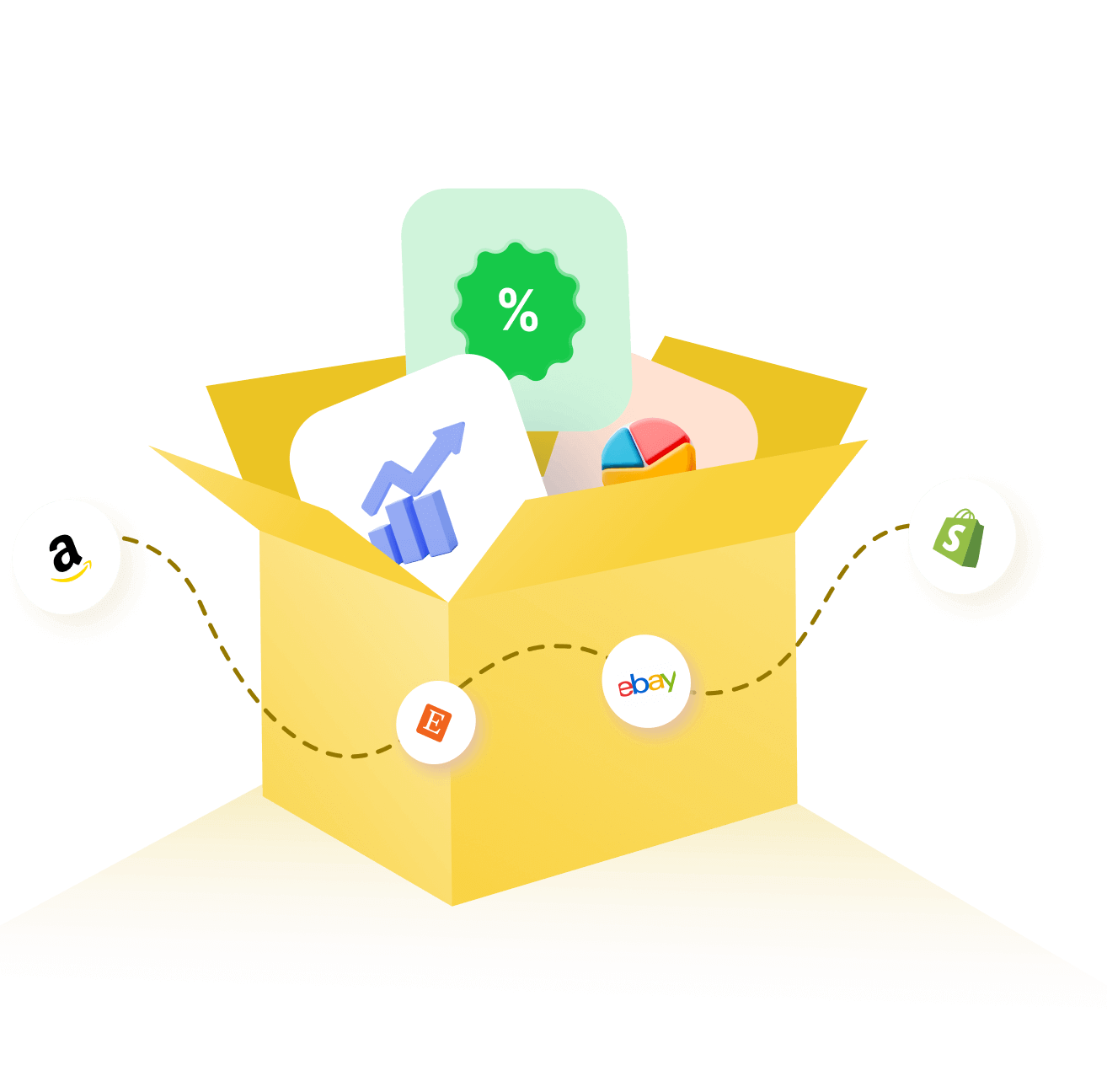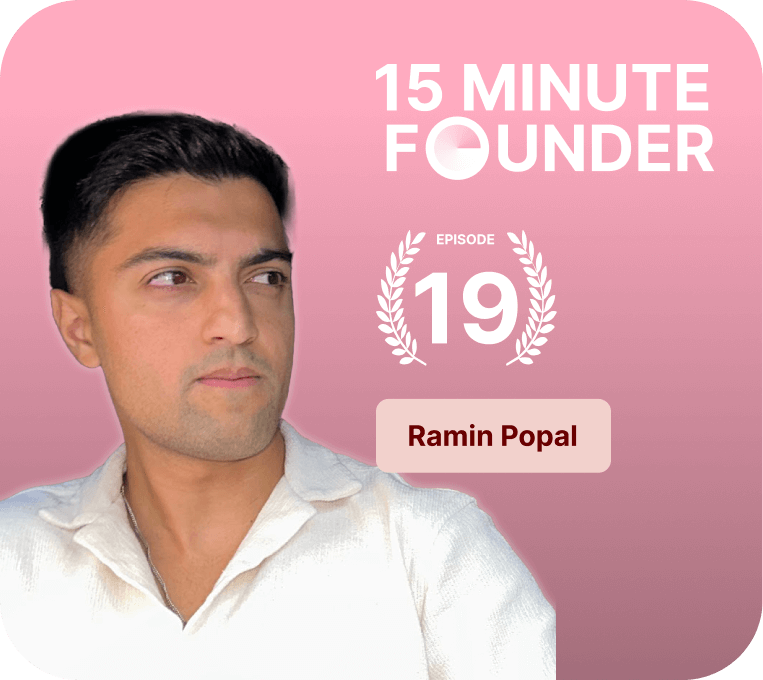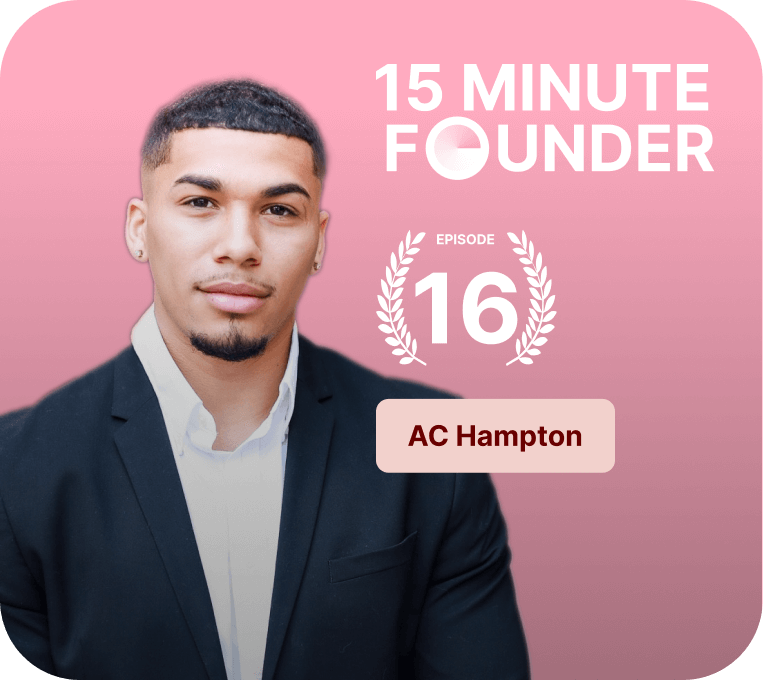Episode #17 - Alex Fedotoff
#15MinuteFounder
Alex Fedotoff, an e-commerce titan who has generated over $100 million in sales, shared his remarkable journey from a factory worker in Ukraine to a millionaire entrepreneur on The 15-Minute Founder podcast. Below, we’ve distilled his insights into a Q&A format, covering his early struggles, the pivot to e-commerce, scaling strategies, and advice for aspiring entrepreneurs.
Highlights
Can you take us back to your early days in Ukraine? What was life like, and what sparked your decision to pursue e-commerce?
Growing up in Ukraine, my family was poor, and I had no clear prospects after university. The typical path offered a $300-$400 monthly salary, barely enough for a car, let alone a house. I knew I wanted something different but lacked a plan. At 23, married and working in a factory for $2 an hour, I hit a breaking point.
Covered in dirt, exhausted, I realized this wasn’t the life I wanted. One day, I quit, threw away my factory clothes, and decided to figure it out despite speaking no English and having no clear direction. The pain of staying in that life pushed me to take the leap.
How did you transition from factory work to e-commerce? Was it a deliberate move or a happy accident?
It was accidental. After quitting, I started freelancing, initially on platforms like Elance (now Upwork). I taught myself skills like search engine optimization (SEO) using Google Translate since I didn’t speak English.
I updated my profile to “SEO expert” and learned on the go. Through freelancing, I worked with an e-commerce client and discovered the potential of selling products online.
Later, a client introduced me to dropshipping, which was a game-changer since I didn’t have capital for inventory. I connected the dots, saw the margins, and started my own Shopify store.
You’ve scaled from $2,000 a month to hosting conferences in Dubai with 200+ attendees paying over $2,000 to learn from you. How did you make that leap?
It was a gradual process of learning and leveraging opportunities. I moved from SEO to conversion rate optimization, Google Ads, and then Facebook Ads, mastering direct response marketing. Working with e-commerce clients gave me insights into sourcing products and managing margins. Starting my own store was the next logical step.
The conference came from sharing my knowledge, people saw my success and wanted to learn. It’s about connecting the dots and constantly adapting to what the market needs.
What’s the biggest mistake new e-commerce entrepreneurs make when starting from scratch to reach $100,000 in revenue?
Overthinking opportunities. There’s so much information online, but not all of it is current or reliable. Learn from people actively succeeding in what they teach, not those peddling outdated methods.
Right now, TikTok Shop is a massive opportunity, you can promote products as an affiliate without inventory, just by creating content. It’s low-risk, and anyone can do it, from stay-at-home moms to people in their 50s, making tens or hundreds of thousands monthly.
How should founders spend their time when building from $0 to $100,000?
Focus on becoming a producer, not a consumer. If you’re scrolling TikTok, start creating content instead. Develop skills like content creation or paid advertising, my specialty is Facebook Ads.
These are high-value skills that drive revenue. Shift your mindset to action and execution rather than overanalyzing.
What’s the biggest mistake when scaling from $100,000 to $1 million in revenue?
Trying to do everything yourself. As your business grows, leverage other people’s time and skills. Identify tasks by their value, focus on $1,000/hour activities like content creation and delegate $10/hour tasks like customer support.
This prevents burnout and maximizes output. Hiring is key to scaling efficiently.
How do you scale from $1 million to $10 million? Where should founders focus their time?
The mistake is still not hiring the right people. At this stage, you need smarter or equally skilled team members to handle marketing, customer support, operations, and finance.
As a founder, stop fighting fires unless it’s a problem only you can solve. Spend time with team leaders, reviewing numbers, planning strategic moves, and building relationships with vendors and partners. Focus on high-leverage activities and empower your team to handle the rest.
What’s the playbook for exiting a $10 million e-commerce business?
Exits depend on your industry, profitability, systems, and competitive moat. In e-commerce, valuation hinges on customer retention, diversified traffic sources, strong branding, profitability, and supplier terms.
A business with repeat customers and a solid foundation commands a higher valuation. Ensure your product is something people love and return for, without that, your foundation is weak.
How is AI impacting e-commerce, and does brand become more important in an AI-driven world?
AI is transformative, tools like ChatGPT write amazing copy, while others streamline video editing, image creation, and data analysis. It lowers the barrier to creating marketing materials and automating tasks.
However, most people underutilize AI because it’s a full-time job to master. Start small, adopt one AI tool weekly to automate tasks. In an AI-driven world, brand differentiation is critical. With lower entry barriers, standing out through unique positioning and storytelling is key.
Can everyone succeed in e-commerce, or are some people not cut out for it?
Not everyone is cut out for it. Entrepreneurship requires rewiring yourself to embrace risk, which most people avoid due to a natural aversion to loss. You must let go of comfort and evolve into someone willing to take financial risks for potential gain.
Those unwilling to change or leave their comfort zone won’t make it. Success comes from an internal drive, my own stemmed from family struggles and a deep dissatisfaction with poverty.
Can you turn someone into an entrepreneur, or is it an innate trait?
If someone wants it badly enough, yes, they can become an entrepreneur. But you can’t force it, internal motivation is key. For me, growing up without my mom for seven years because she worked abroad to support us fueled my drive to solve money problems.
Painful experiences often forge entrepreneurs. Without that internal fire, people revert to old habits.
Do you believe in work-life balance for entrepreneurs, or is it all-in commitment?
Initially, there’s no balance, it’s a grind. You’re working 12-16 hours daily, learning skills, and building with no resources to hire help. Over time, as you earn money and hire, you buy back time through leverage.
Early on, it’s an obsession, eliminating distractions to focus on high-impact tasks. Later, you can find balance by delegating low-value tasks.
What motivates you today: money, power, pleasure, or fame?
Power, in a positive sense, leverage to protect my family and create impact. Early on, it was money to survive and escape poverty. Now, it’s about creating value and helping others get rich, like Jeff Bezos did with Amazon.
Success correlates with the number of people you positively impact.
What’s the biggest mistake people make with creative in e-commerce, and how do you fix it?
Failing to resonate with the audience. Diagnose by analyzing data, click-through rates, cost per click, watch time, and conversion metrics like add-to-cart and purchase rates.
If the creative is the issue, evaluate it from the customer’s perspective: Does it clarify the product’s value and differentiate it from competitors? Use copy that discredits alternatives, e.g., “I tried X, Y, Z, and nothing worked until this.” Ensure the funnel supports the creative.
How can someone improve their copywriting skills for e-commerce?
Rewrite great copy by hand. Study proven copy from competitors, understand its structure, and adapt it to your business.
Copywriting has been refined for over 100 years, you don’t need to reinvent it. Retyping and analyzing successful copy is the fastest way to improve.
When a founder is the bottleneck in a scaling company, what’s your advice for hiring?
Identify high-value tasks ($1,000-$10,000/hour) like strategy or content creation and keep those. Delegate low-value tasks ($10-$100/hour) like customer support or copywriting to virtual assistants or specialists.
Investing time to hire the right people buys back your life. For example, a $100,000/year copywriter saves you 2,000 hours annually, preventing burnout and boosting ROI.
What does a day in your life look like?
I wake up around 7 a.m. with my younger son, spend time with him, then relax in the jacuzzi or sauna to think and set my day. Some days, I work from home or the office; others, I grab coffee with my wife.
Evenings are for the gym, time with my kids, and reading or chilling. My life is simple, focused on family and high-leverage work.
How do you balance family and a demanding business?
Get help, we have two nannies to manage family demands. Audit your life for low-value tasks and delegate or eliminate them. Prioritize high-value activities like family time and strategic business decisions.
Be clear on your values and accept trade-offs, like slower business growth for stronger family bonds. Clarity reduces anxiety.
What’s the most impactful book you’ve read?
How to Get Rich by Felix Dennis. I read it as a pirated PDF in Ukraine, translating it because I couldn’t afford a copy.
It shifted my perspective, showing that wealth solves some problems but creates others. It made the entrepreneurial path feel possible and clarified the trade-offs.
What’s a contrarian belief you hold that might stir controversy?
The worst thing in life is dying with unrealized potential. Everyone has the capacity for greatness, but society, teachers, and even loved ones suppress it with negativity or doubt. If you believe you can do something and don’t try, you’re wasting your life.
Most people stay comfortable, but true success requires ignoring critics and cutting toxic influences.
How do you handle societal pressures or naysayers, like the “crabs in a bucket” mentality?
Surround yourself with better “crabs.” Choose a circle with higher baselines, people who are established or ambitious.
Cut out negative influences, even family, if they hold you back. I didn’t tell my parents I quit my factory job until I was a millionaire two years later to avoid their doubts. You have the power to choose who you engage with and what conversations you have.
What message would you put on a Times Square billboard to inspire someone hesitant to start an e-commerce business?
“You’re going to die. Go for it.” Life is finite, don’t waste your potential. Take the risk, start the business, and pursue your dreams without regret.
Time stamps
00:00 – 00:10 – Introduction to Alex Fedotoff
00:10 – 00:40 – How Alex went from factory work in Ukraine to becoming an e-commerce millionaire
00:40 – 01:10 – The moment Alex decided to quit his job and pursue e-commerce full-time
01:10 – 02:40 – The hardships Alex faced while transitioning into freelancing and digital marketing
02:40 – 04:00 – Discovering e-commerce: From SEO to Facebook ads and the pivot to dropshipping
04:00 – 04:50 – Alex explains how he connected the dots and started his own Shopify store
04:50 – 06:00 – The rise of e-commerce and the importance of Facebook ads for scaling
06:00 – 06:40 – What it took to go from $2,000 a month to hosting 200+ people at his Dubai conference
06:40 – 08:10 – The biggest mistake new e-commerce entrepreneurs make and advice for going from $0 to $100k
08:10 – 09:00 – How Alex recommends approaching content creation and shifting from consumer to producer
09:00 – 10:00 – The biggest mistakes people make when scaling from $100k to $1M in revenue
10:00 – 11:00 – The importance of leveraging other people’s time and avoiding burnout
11:00 – 12:00 – From $1M to $10M: Scaling with the right team and finding the right people for each function
12:00 – 13:00 – Alex’s thoughts on where founders should spend their time and the importance of empowering your team
See other podcasts
Less blah,
More doola.
Join doola and start building today.





